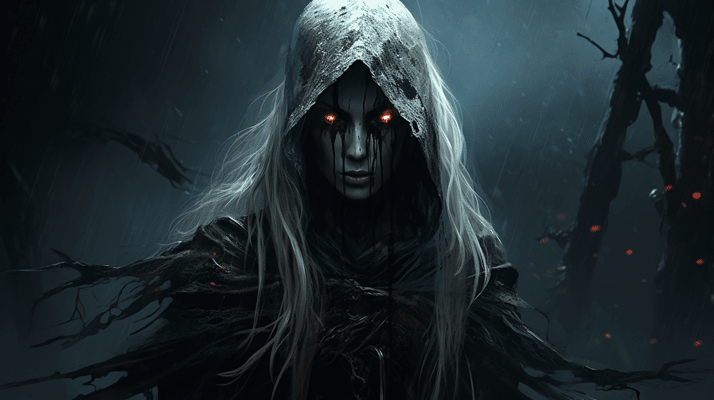


Necromancy is a dark and forbidden form of magic that deals with death and the manipulation of spirits and the deceased. Practitioners of necromancy, known as necromancers, are often feared and shunned by society due to the association of their magic with death and dark forces.
Aspects of Necromancy
Communicating with Spirits: Necromancers have the ability to communicate with spirits of the deceased, seeking knowledge, guidance, or even summoning them back to the mortal realm. This aspect of necromancy allows practitioners to bridge the gap between the living and the dead.
Raising the Dead: One of the most infamous aspects of necromancy is the ability to raise corpses as undead minions. These zombies or skeletons can be controlled by the necromancer to serve their dark purposes. The practice of raising the dead is both feared and abhorred by most societies, as it disrupts the natural cycle of life and death.
Curses and Hexes: Necromancers can wield curses and hexes to afflict their enemies with various misfortunes or ailments. These curses can range from causing illness to inflicting bad luck. The malevolent nature of these hexes further adds to the fear surrounding necromancy.
Soul Manipulation: Advanced necromancers may have the power to manipulate souls, perhaps even trapping them in objects or other planes of existence. This aspect of necromancy delves into the realm of the afterlife and the fate of souls, making it even more unsettling.
Taboos and Dangers: The practice of necromancy is forbidden due to its association with death and dark forces. It can corrupt the soul of the practitioner and lead to dire consequences. Necromancy is punishable by death, with law enforcement and religious authorities fiercely hunting down those who practice it.
Morality and Ethics: The use of necromancy raises ethical questions, as it involves tampering with the natural order and interfering with the afterlife. Some necromancers may justify their actions as a means to gain knowledge or power, while others embrace the darker aspects of the craft. All practices occur in secret as necromancy is punishable by death.
Forbidden Knowledge: Like blood magic, necromancy is one of the forbidden magics. Practitioners often seek hidden tomes and ancient knowledge to deepen their understanding of the art. The pursuit of this forbidden knowledge often leads necromancers to remote and secluded places, away from the prying eyes of society.
Cults and Outcasts: Necromancers are often seen as outcasts or members of secretive cults due to the dangerous nature of their magic. They may dwell in hidden places, pursuing their dark studies far from civilization. The fear and stigma surrounding necromancy often isolate its practitioners from the rest of society.
While necromancy is generally perceived as malevolent and forbidden, there may be exceptions. Some individuals may use necromantic abilities to communicate with deceased loved ones or for benevolent purposes, challenging the traditional view of necromancy as purely evil. These types of necromancy are rare and often overlooked by law enforcement or religious authorities, but they offer a more complex and nuanced understanding of this forbidden magic.
The practice of necromancy is often viewed as a perversion of Clainer's domain. Clainer, as the God of Death and Transition, oversees the passage of souls from the mortal realm to the afterlife, maintaining a delicate balance between life and death. Necromancy, with its manipulation of spirits and the dead, disrupts this natural order and attempts to control forces that are best left untouched.
Necromancers, in their pursuit of power and forbidden knowledge, challenge Clainer's authority and seek to wield control over life and death. This defiance of the natural order makes necromancy an abomination in the eyes of those who worship Clainer.
The followers of Clainer often view necromancers with hatred and disdain, seeing them as dark and dangerous practitioners who meddle with powers beyond mortal understanding. The act of raising the dead, in particular, is seen as a blasphemous act that defies the divine will and taints the souls of the departed.
The practice of necromancy is strictly forbidden and carries severe consequences, including death. Temples dedicated to Clainer actively oppose necromancers, seeking to protect the sanctity of death and preserve the natural order of the afterlife.
For those who revere Clainer and hold death as a sacred transition, necromancy stands as a stark reminder of the dangers of tampering with forces beyond mortal comprehension. It serves as a cautionary tale of the consequences that await those who dare to defy the divine and meddle with matters best left to the realm of the gods.